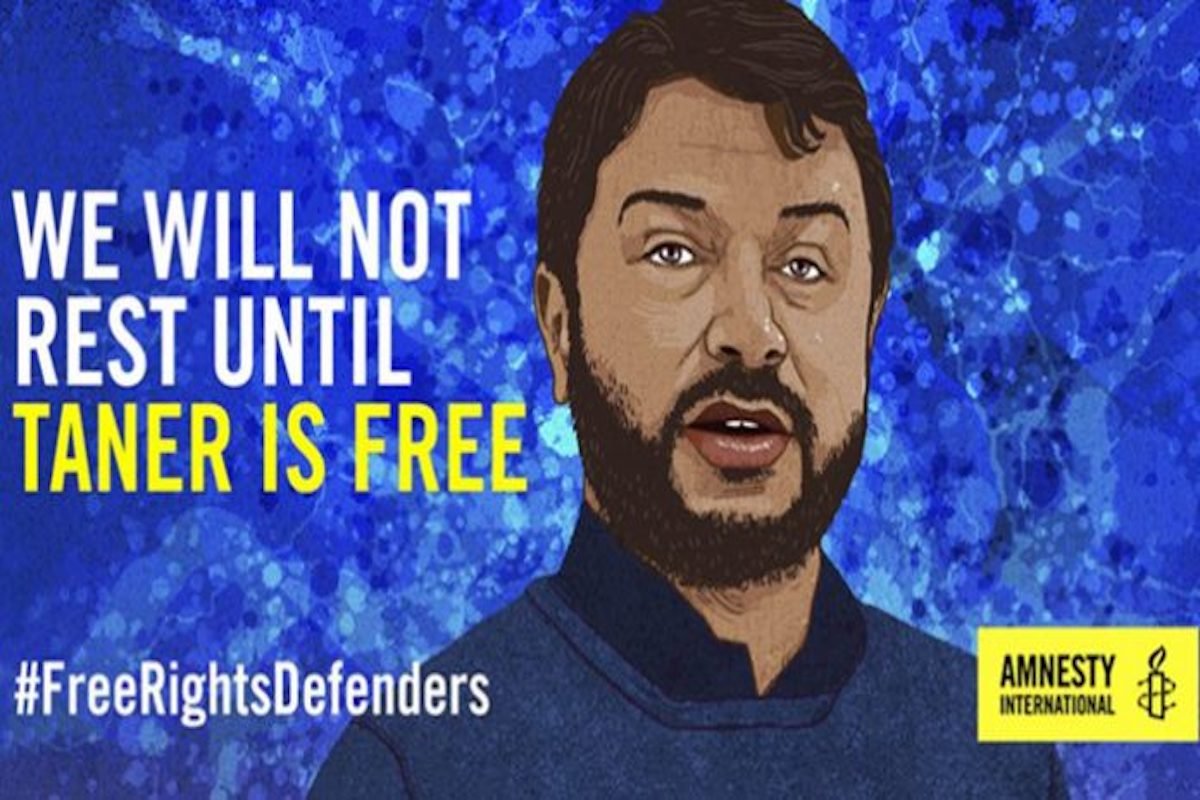A police report seen by human rights organisation Amnesty International (AI) shows no evidence substantiating the key charge against its honorary Turkey chair, Taner Kılıç, who was jailed on June 6, 2017 over alleged membership in the Gülen movement, according to a report by the Guardian on Monday.
Turkish police had said Kılıç’s membership in the movement would be proven by the presence on his smartphone of ByLock, a messaging application.
Turkish authorities believe ByLock is a communication tool among alleged followers of the Gülen movement. Tens of thousands of people, including civil servants, police officers, soldiers, businessmen and even housewives, have either been dismissed or arrested for using ByLock since a controversial coup attempt on July 15, 2016.
While the authorities detected 123,000 ByLock users, researchers later discovered that malware had left traces of the application on thousands of unsuspecting phone users who downloaded other software.
This discovery led to the release of over 11,000 people, but Kılıç was not among them; however, according to the police report cited in the Guardian, there was no evidence the software had been on Kılıç’s phone or other devices.
Amnesty had previously commissioned two expert reports to show ByLock had never been on Kılıç’s phone, but the reports did not persuade the court to release him. “The failure to substantiate the accusation against Taner comes as no shock. What is shocking is that it has taken more than a year for this police report to be submitted, and during that time Taner has been locked behind bars,” the Guardian quoted Amnesty International’s Secretary-General Salil Shetty as saying.
“Taner has become a potent symbol of what is happening in today’s Turkey, where many human rights defenders spend their days either languishing in jail or living in constant fear of being imprisoned for months or years. It is high time to end this relentless crackdown on human rights,” said Shetty.
Kılıç is due for another hearing on Thursday and may be released this week due to the police report’s findings, according to the Guardian.
Turkey survived a controversial military coup attempt on July 15, 2016 that killed 249 people. Immediately after the putsch, the Justice and Development Party (AKP) government along with President Recep Tayyip Erdoğan pinned the blame on the Gülen movement.
Fethullah Gülen, who inspired the movement, strongly denied having any role in the failed coup and called for an international investigation into it, but President Erdoğan — calling the coup attempt “a gift from God” — and the government initiated a widespread purge aimed at cleansing sympathizers of the movement from within state institutions, dehumanizing its popular figures and putting them in custody.
Turkey has suspended or dismissed more than 150,000 judges, teachers, police and civil servants since July 15. On December 13, 2017 the Justice Ministry announced that 169,013 people have been the subject of legal proceedings on coup charges since the failed coup.
Turkish Interior Minister Süleyman Soylu announced on April 18, 2018 that the Turkish government had jailed 77,081 people between July 15, 2016 and April 11, 2018 over alleged links to the Gülen movement.

















[…] http://stockholmcf.org/no-evidence-against-amnestys-jailed-turkey-chair-taner-kilic-police-conclude… […]